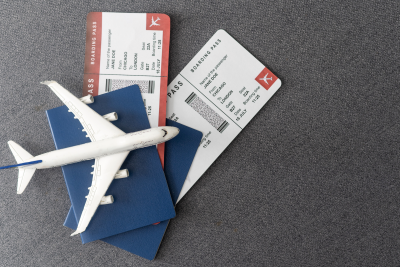2 min read
Court Blocked JetBlue’s Acquisition of Spirit on Antitrust Grounds
Joe Whitcomb
:
July 16, 2025

The United States filed suit to block JetBlue Airways Corporation’s proposed acquisition of Spirit Airlines, Inc., alleging that the merger violated Section 7 of the Clayton Act. The Department of Justice (DOJ) argued the merger would substantially lessen competition in the domestic airline industry, particularly among low-cost carriers.
JetBlue announced in 2022 its intent to acquire Spirit for $3.8 billion. The DOJ alleged the merger would eliminate head-to-head competition on hundreds of routes and result in higher fares and fewer options for consumers. It further argued that the loss of Spirit would diminish the competitive influence of ultra-low-cost carriers (ULCCs) that discipline fares across the market.
Court analyzed competitive effects and market structure
The district court reviewed economic data, industry history, and testimony from airline executives and experts. The court acknowledged that Spirit’s ultra-low-cost business model offered a distinct consumer option that exerted downward pressure on ticket prices, including those offered by larger legacy airlines.
The court found that JetBlue and Spirit directly competed on over 100 routes and that their merger would eliminate this competition. It credited evidence showing that Spirit’s presence on a route frequently caused other carriers, including JetBlue, to lower fares.
JetBlue argued that the merger would allow it to better compete with major carriers by expanding its network and reducing costs. The court rejected this justification, holding that increased efficiency or scale could not offset the anticompetitive effects of eliminating a primary low-cost competitor.
Rejection of proposed remedies and efficiencies
JetBlue proposed divestitures of gates and slots at certain airports and argued that the combined airline could offer improved service and enhanced competition against dominant airlines. The court held that the proposed remedies were insufficient to preserve the unique competition Spirit provided.
The court emphasized that Section 7 of the Clayton Act requires courts to stop mergers that may substantially lessen competition, not just those that result in a monopoly. The loss of a disruptive competitor like Spirit was found to likely result in higher prices and reduced consumer welfare.
Final outcome
The U.S. District Court for the District of Massachusetts ruled in favor of the DOJ and permanently enjoined JetBlue’s acquisition of Spirit. The court found that the merger would violate federal antitrust law by removing one of the few ULCCs capable of constraining fare increases across the industry.
Help with merger compliance and antitrust risks
If your company is exploring a merger or acquisition and needs to evaluate antitrust risk or government scrutiny, Whitcomb, Selinsky PC handles transactions involving competition law, merger clearance, and regulatory compliance. Reach out to schedule a consultation and learn how our team can assist with your case.


